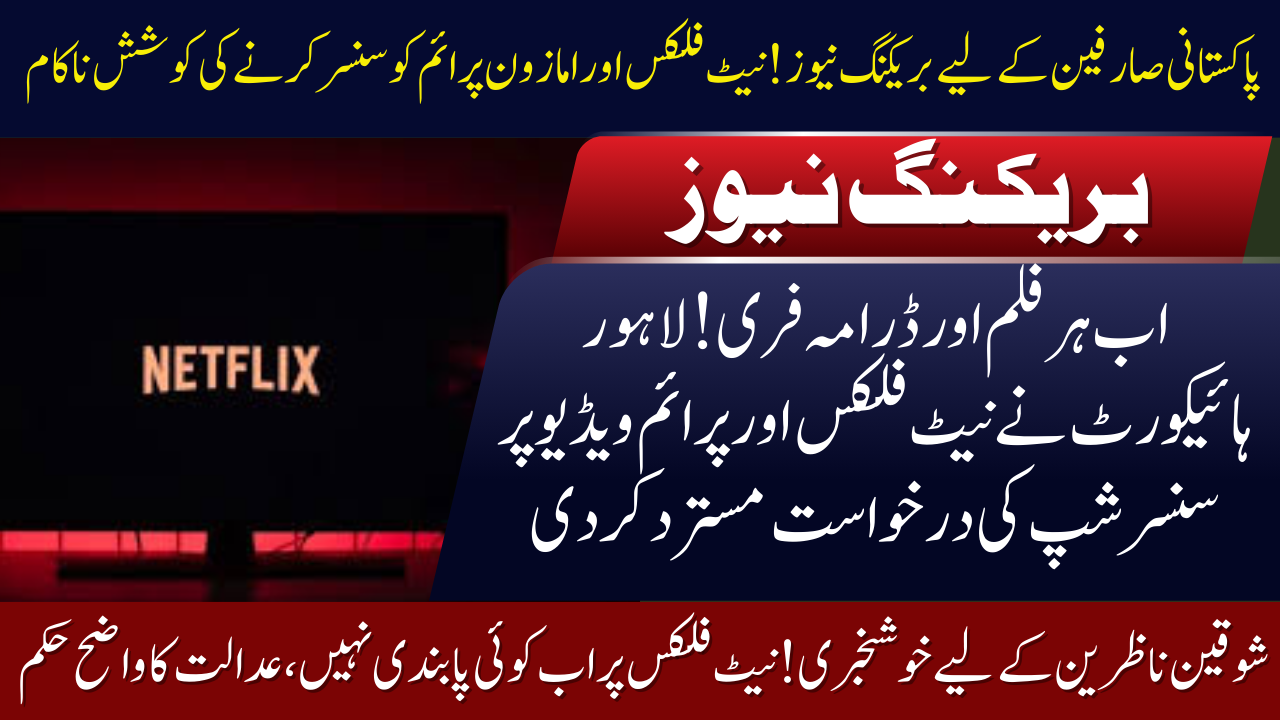Netflix and Amazon Prime Will Not Be Censored in Pakistan
The Lahore High Court (LHC) has delivered a landmark ruling by dismissing a petition that sought censorship of popular streaming platforms such as Netflix and Amazon Prime Video. The court declared that Pakistan’s existing legal framework does not extend to digital platforms, making censorship of online streaming services beyond the scope of the law.
Background of the Case
The petition was filed by a private company that owns a cinema license. The petitioner argued that, since movies screened in cinemas are censored under the Motion Picture Ordinance of 1979, similar rules should apply to streaming platforms.
However, Justice Raheel Kamran Shaikh rejected this argument, clarifying that the 1979 law only applied to cinemas and was never designed to regulate online content, as streaming services did not exist at that time.
Court Observations
The 20-page written judgment stated:
- The Motion Picture Ordinance (1979) applies only to films exhibited in physical cinemas.
- After the 18th Constitutional Amendment, provinces developed their own laws for cinema, television, and stage dramas — but none covered digital streaming platforms.
- Streaming platforms like Netflix and Amazon Prime host millions of hours of content, making prior censorship impractical and impossible.
The judge noted that online platforms operate under an entirely different model than cinemas, and therefore, cannot be forced under outdated laws.
Why the Petition Was Dismissed
The court concluded that:
- The legal framework does not empower censor boards to regulate Netflix or Amazon Prime.
- If censorship was intended, lawmakers would have amended the law.
- Extending cinema laws to online platforms is inconsistent with the legal structure.
Thus, the petition was dismissed, giving a clear message that digital services cannot be censored under cinema-based laws.
Implications of the Verdict
- Freedom for Streaming Users
Pakistani viewers can continue to access Netflix and Amazon Prime without content censorship. - Legal Clarity
This ruling clarifies that only new legislation could regulate digital platforms in the future. - Challenge for Regulators
With streaming becoming more popular, authorities may now consider drafting updated digital media laws instead of relying on outdated frameworks. - Impact on Cinema Industry
Cinemas had hoped for a “level playing field” with streaming giants, but the judgment has reinforced that digital and traditional film screenings are separate domains.
FAQs About the Case
Q1: Will Netflix and Amazon Prime be censored in Pakistan?
No, the LHC has ruled that current laws do not apply to streaming platforms.
Q2: Can the government make new laws to regulate streaming content?
Yes, but it requires fresh legislation by parliament or provincial assemblies.
Q3: Does the Motion Picture Ordinance of 1979 cover online content?
No, it only applies to films shown in cinemas.
Q4: What does this mean for Pakistani Netflix and Prime subscribers?
Subscribers can continue watching content without censorship, unless future laws are introduced.
Conclusion
The Lahore High Court’s decision is a landmark moment for digital freedom in Pakistan. It confirms that outdated cinema laws cannot be stretched to control platforms like Netflix and Amazon Prime. While the debate over regulating online content may continue, for now, Pakistani audiences can enjoy uninterrupted access to global entertainment.
Related Posts












